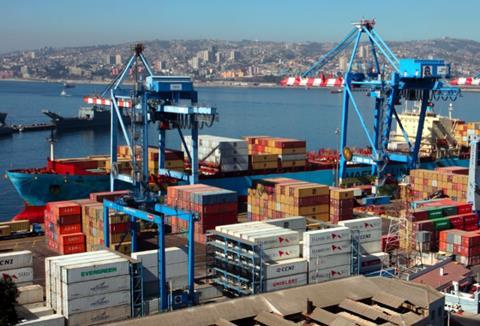
More than two weeks of strikes at 11 ports in Chile all but came to an end this week having caused an estimated $50 million of losses to the fruit export sector and probable disruption to UK supply.
Chilean president Sebastián Piñera declared the strikes over on 7 April, although one union at the major port of San Antonio still had workers out on strike at the beginning of this week. The industrial action led to packhouses closing and workers being sent home as well as senders missing out on important marketing windows in major export destinations.
Departures of grapes, kiwifruit and top fruit have all been disrupted and sendings paralysed for 10 days. Many growers had to suspend their harvesting activities – particularly of Autumn Royal, Crimson and Red Globe - as coldstores filled up. Fedefruta president Cristián Allendes said: “The year’s work of the 30,000 producers we represent has been lost in a few days.”
One sender in Chile told FPJ: “The US marketing order on grapes comes into effect on 10 April and duty starts on imports into Korea in May. This means there will have to be a lot of fruit diverted away from those markets, which will hit Europe.”
The likely scenario is a tightening of supply before fruit that had been destined for Korea and the US enters the marketplace. “Importers will work through their stocks first but in a week or so – the last week of April – we could see a shortage in the UK,” an industry insider explained. “It won’t have a massive impact on white seedless as there are volumes coming from India, but red seedless will be tight. Then in the first or second week of May, the Thompson Seedless that has been sitting in coldstores because of the strike will start to come through. I think most of it will go to continental Europe and senders will not want to risk condition issues with the UK.”
The Chilean season is expected to continue until mid-May, but onlookers say the UK market will have to act responsibly, with the voyage for container ships taking on average 26-28 days this season as ships slow steam to save fuel and reduce emissions. “We need everyone to be aware of what they have on the water already and not think because there is a gap in the market they can bring fruit over and it will arrive in 24 days to meet that demand, because it won’t,” warned the insider.



